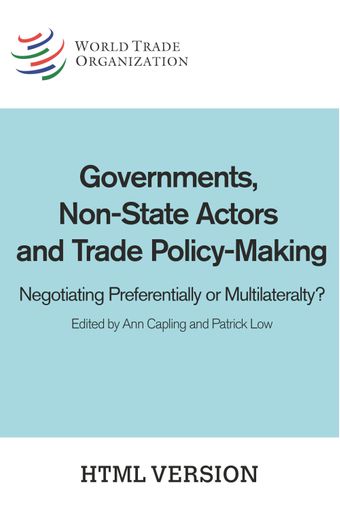Indonesia

- Authors: Alexander C. Chandra and Lutfiyah Hanim
- Source: Governments, Non-State Actors and Trade Policy-Making , pp 8-8
- Publication Date: January 2010
- DOI: https://doi.org/10.30875/b7d82a4f-en
- Language: English
The emergence of democracy in Indonesia as a result of the economic crisis in the late 1990s has brought significant changes to the policy-making process in the country. The reform advocates who emerged following the downfall of the authoritarian Suharto regime saw liberalization and engagement with the global economy as key to advancing economic reform in Indonesia. While recognizing the importance of concluding the global trade negotiations under the auspices of the World Trade Organization (WTO), Indonesia also remains committed to pursuing liberalization at the regional level through its membership of the Association of Southeast Asian Nations (ASEAN). Recently, Indonesia has also engaged in bilateral preferential trade agreements (PTAs), in part due to the stalling of the Doha Round negotiations, but also because the pursuit of PTAs by Indonesia’s immediate neighbours has generated fear among government and economic actors about the possible loss of competitiveness in key export markets.
-
From This Site
/content/books/9789287046635c015dcterms_subject,pub_countryId-contentType:WorkingPaperSeries -contentType:Periodical -contentType:BookSeries -contentType:ReportSeries105


